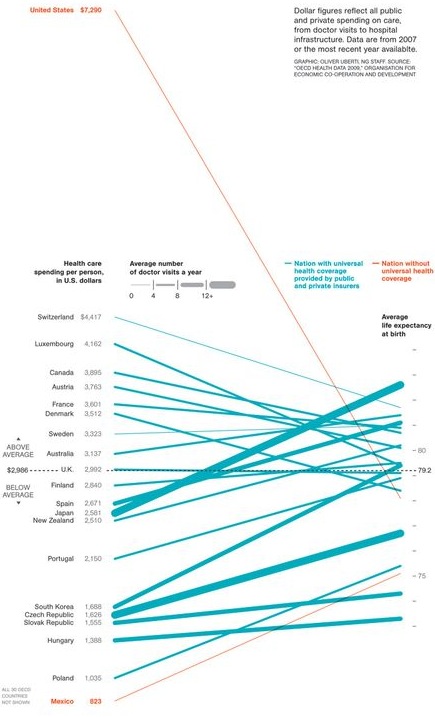In Massachusetts, Our Vote Actually Counts—Don’t Waste It!
We in Massachusetts aren’t used to competitive elections. That’s not because it’s a “one-party state”; although Democrats hold the legislative offices, there was a string of Republican governors elected from 1991 to 2006.
Rather, we’re not used to nail-biters. For the past twenty-five years, surveys of statewide elections have shown one candidate holding a solid lead weeks ahead of Election Day. Even when campaigns were close for a while, as some Senate elections have been, one candidate has pulled out toward the end. And in tight Presidential races, because of the unnecessary and undemocratic Electoral College, adding more votes to the winner’s majority in Massachusetts means nothing to the overall “official” results.
But this Tuesday’s U.S. Senate election is different. The polls are too close to call, in part because it’s an off-year special election, so the statistical experts aren’t sure how to model their results.
Tuesday’s election is also important. Our votes can actually make a difference, and our “protest votes” aren’t just symbolic.
Attorney General Martha Coakley is a solid progressive Democrat. State senator Scott Brown is a doctrinaire Republican. President Barack Obama has repeatedly invited all members of Congress to help find bipartisan programs to address our priorities, but the Republican minority has resentfully refused. That means this election could allow centrist legislation (i.e., designed to appeal to 60% of the Senate, representing a large majority of the American people) to proceed, or scuttle it entirely.
Brown says he’s not a doctrinaire Republican, just as Mitt Romney claimed when running for Senator and then governor in Massachusetts. But Brown is for torture, tax cuts for the wealthiest, and continued wars. Brown’s claimed to be pro-choice, but advocated limits on abortion medication and information—can anyone doubt he’d make those limits national law if he had the chance? Brown now says that marriage equality is settled in Massachusetts, but three years ago he was trying to repeal it—does anyone believe he’d really be a voice for equality within the national Republican Party?
Brown isn’t a distinguished legislator, but as a Republican in Massachusetts he didn’t have a chance to be; most of the state disagrees with his ideas, so they don’t get made into laws. Instead, he points to his service as a lawyer and in the National Guard. That background makes it all the more dismaying that he complained in writing about a bombing suspect being given “taxpayer-funded lawyers in a US courtroom.”
Evidently Brown doesn’t know that the “military commissions” he prefers also require defendants to be represented by lawyers paid by taxpayers. And those military lawyers have done a very effective job of showing that the commissions system is unjust and unconstitutional, as well as unnecessary. In sum, Brown’s positions are more ideological than logical, more sound bite than sound facts. In contrast, Coakley believes in the Constitution and the US justice system, and has a long record as a prosecutor to prove it.
Brown’s policy approaches make him a typical Republican these days. Take, for example, the party’s reaction to the Bush-Cheney TARP law, which gave huge sums to prop up banks and other lenders. Thanks to Rep. Barney Frank and others, that law also required future administrations to find a way to regain those funds. The Republican Party, and Scott Brown, now say that the federal government shouldn’t tax banks because they’d pass on costs to consumers. Apparently the party feels confident that we taxpayers won’t notice that we’ve already incurred those costs thanks to a Republican administration. There’s no logic to that position—only an unbending determination to benefit the banks and their shareholders. In contrast, Coakley has sued predatory mortgage lenders on behalf of the Massachusetts people.
Coakley is ready to support the current health insurance reform bill, despite opposing some of the provisions inserted to produce a supermajority in the Senate. Brown opposes it despite supporting similar legislation in Massachusetts when it was promoted by a Republican governor. He promises to stop the bill in Washington, but what does he promote instead? Nothing in particular. “I will insist we start over,” Brown writes. I don’t like how the health insurance reform debate has dragged on, but I sure don’t want to do it all over again with him in the Senate.
The current bill is designed to preserve the health-insurance industry, which looks to me like the main source of our system’s inefficiency and wasted expense. Check out this chart from that radical rag National Geographic about how much of an outlier the US is on medical costs, and how average our outcomes are.  The program now under consideration in Congress promises some moderate improvements to the status quo, as mapped by Think Progress.
The program now under consideration in Congress promises some moderate improvements to the status quo, as mapped by Think Progress.  But even that change is too much for the Republicans and Scott Brown.
But even that change is too much for the Republicans and Scott Brown.
A vote for Coakley wouldn’t change the Senate balance, but a vote for Brown would. Tomorrow’s election is thus a choice between allowing moderate progress on issues and rewarding ideological intransigence. With such a clear political difference, we in Massachusetts shouldn’t vote on the basis of personalities, symbolic “messages” to the “establishment,” or size of chin. Yet enough of us are apparently doing so that this is the closest election the state has seen in decades.


No comments:
Post a Comment